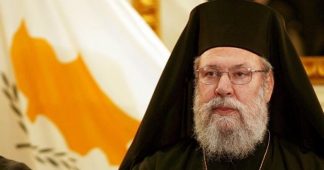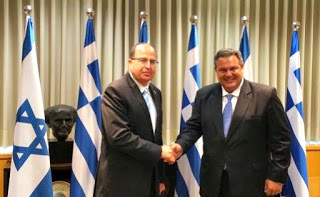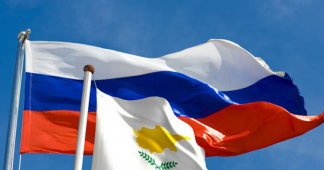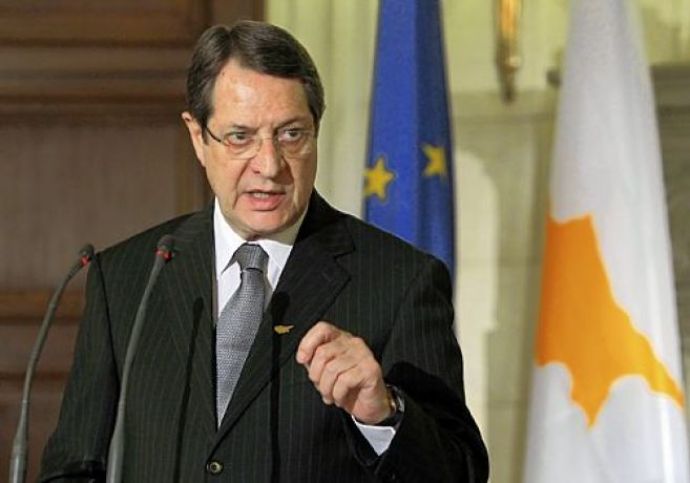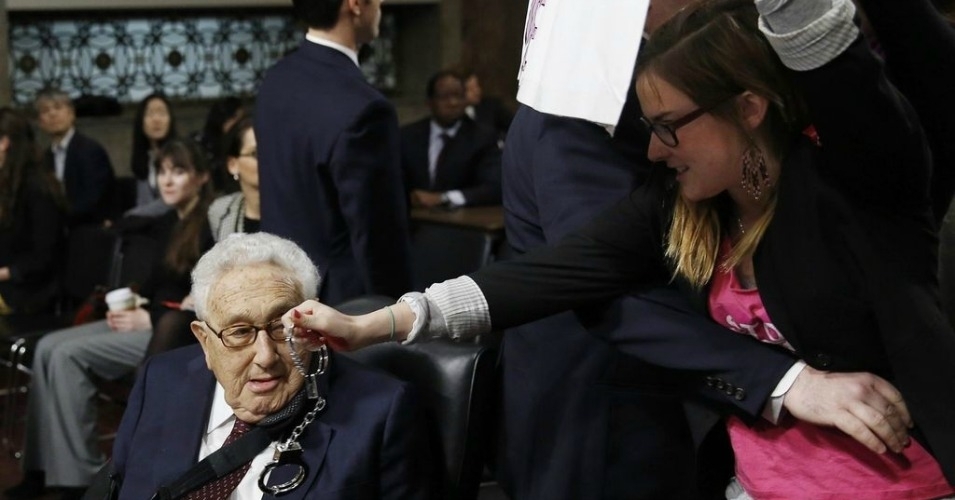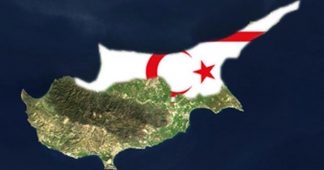By William Mallinson (*)
As yet another ‘High Noon’ looms over Cyprus, with the usual Western/NATO threats about this being the last chance for a solution, let us consider the rôle of Henry Kissinger, without whom it is highly unlikely that Turkey would have dared to invade and occupy Cyprus in the first place. Before we specify how he procrastinated and slithered to allow Turkey the space it needed to invade, we need some brief background to illustrate his obsession with Cyprus, and his delaying tactics following the Turkish invasion.
As early as 1957, he had written, in his highly controversial book Nuclear Weapons and Foreign Policy: ‘We should be able to count on […] Cyprus or Libya as staging areas for the Middle East.’
Just after the coup in Cyprus, he refused a request by Senator Fulbright to send the American Sixth Fleet on a goodwill visit to Cyprus, claiming that this would be interfering in Greek affairs. This was highly hypocritical, since he had sent instructions (belatedly) to the US embassy in Athens asking Greece not to interfere.
When, in the wake of the Turkish invasion, Britain tried to give up its territories on Cyprus, Kissinger refused, on the grounds that Cyprus was an important piece on the world chequer board, and important in the Arab/Israel dispute.
Kissinger pressurised the British into not demanding the recall of the Greek officers in Cyprus, following the coup, on the specious grounds that they acted as a force against communist infiltration. When Britain did make the demand, it was too late, as Turkey was already invading. It was highly unlikely that Turkey would have dared to invade, if the UK and US had immediately demanded the withdrawal from Cyprus of the Greek mainland officers. Kissinger did not wish for Makarios to be re-instated, on the grounds that this would favour Soviet policy. Considering the plethora of documented evidence that Kissinger did his best to undermine Makarios, and disliked him personally, he is highly contradictory when he later wrote that the US could have co-existed with Makarios very well. Kissinger simply changed the script when it suited him. Even more bizarrely, Kissinger claimed in a letter to the British Foreign Minister that were outside pressure brought to bear to restore Makarios, this would solidify the regime in Athens. This was patent nonsense, since Makarios’ immediate return would have ended the Athens Junta, which was in any case about to collapse.
At the Geneva negotiations, Kissinger refused to countenance even the threat of cutting off military aid to Turkey.
Kissinger convinced the British Ambassador in Washington that the UN Secretary General was mistaken in believing that the threat of British military power being deployed would lead to a swift Greek withdrawal and probably the collapse of the Sampson putschists.
As Turkey began on 14 August 1974 to take over more than one third of Cyprus, Kissinger refused to attend a NATO meeting before 19 August (by which time he knew that Turkey would have completed its land-grab).
During the Geneva negotiations, only two days before the Turkish land-grab, Kissinger refused the Greek Foreign Minister’s request to visit Washington ‘until after this round of the Geneva talks was over.’
Given all the above, it is hardly surprising that Turkey felt, and knew, that Kissinger had given them a blank cheque to invade, and the time to complete it. As the Foreign Office itself wrote: The Turks seem to have concluded early on that American pressure would not be backed by anything stronger [e.g. military action]; this was no doubt a factor in their tactics at the second Geneva conference. It is certainly the case that Dr. Kissinger was concerned with the maintenance of Turkish goodwill as a bulwark between the Soviet Union and the Arab States as well as the continued use of the US bases in Turkey.
As for the devil in the detail, Kissinger himself, this extract from my recent book on Kissinger speaks volumes about Kissinger’s utter lack of ethics:
‘Apart from the bizarre assessment that Makarios, with his acumen, intelligence and information network, was not in touch, Kissinger was sensitive about Makarios’s mention of a cantonal arrangement. This is because towards the end of the Geneva talks the Turkish delegation had given the Americans a proposal for a ‘five or six cantonal solution’, which the Greeks had, according to Kissinger, then rejected. But in fact Clerides, the Cypriot negotiator, had asked for thirty-six hours to consider the proposal, whereupon Günes had simply left the talks, and telephoned Eçevit with a secret message to begin the second phase of the invasion. Apart from the Turks refusing to contemplate waiting thirty six hours, the American rôle is curious, since the US was not a party to the treaty, and had no official negotiating position, even as a facilitator.
Kissinger’s sensitivity comes across in an FCO telegram:
He [Kissinger] was uncomplimentary about Makarios, whom he had seen a few days ago. He had to guard himself against Makarios’ practice of misinterpreting their conversations to the press and elsewhere. Makarios had tried to make out that a multi-regional solution was still a possibility, since the Americans could persuade the Turks to accept it. Kissinger had denied this and had told him that if a bi-regional solution was obtainable, the Americans had already shown that they would not object to it. He had been careful not to say flatly that the bi-regional solution was the preferred American one, nor to leave Makarios in a position to quote him as saying that, because the latter was only too capable of making this into an issue, portraying the Americans as bullying the Greeks into accepting humiliating terms.
From all the above, we can see that Kissinger had not been forthcoming with the facts, and was squirming semantically: for it was the Americans, and therefore Kissinger, who had “induced the Turks to table a multi-cantonal proposal”, and Makarios knew this. Kissinger was thus not happy with Makarios’s veracity, and was perhaps also frustrated that the Archbishop had come bouncing back. Unlike the Soviets, who had remained on the sidelines at Geneva, the Americans played a prominent part, mainly as facilitators, in the negotiations; and a man of Makarios’s calibre and integrity would be unlikely to expressly misrepresent Kissinger’s words following a later meeting with him. It was, rather, Kissinger who appeared to be indulging in misrepresenting, as it was indeed the Americans who had fed the Turkish delegation with the cantonal idea. It would be useful to have the precise official American records of the exchanges, rather than Kissinger’s protestations to the British ambassador, but perhaps they are among Kissinger’s private papers, or have been destroyed. Or perhaps they were never even recorded, although the FCO did write the record to which I have referred above.
(*) William Mallinson is a Former British Diplomat, Professor of Political Ideas and Institutions at Universita Guglielmo Marconi and author of Kissinger and the Invasion of Cyprus and of The Threat of Geopolitics to International Relations.
